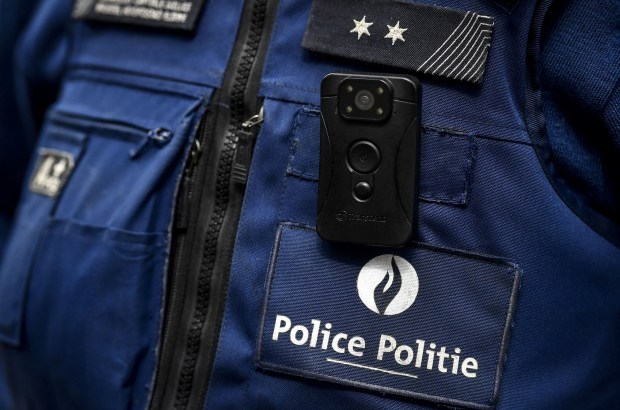On Friday, the Federal Government approved a draft law to regulate the use of body cams by the police. The footage can then be used as evidence by both police forces and citizens in case of conflict, announced Interior Minister Annelies Verlinden in a press release.
The law stipulates when and how police officers can make image and sound recordings with bodycams during police work. Research and several pilot projects show that the use of bodycams can provide de-escalation during incidents.
"We can never tolerate violence, and especially not against our police officers. They work every day to ensure our safety, and deserve nothing but respect," said Verlinden in a press release on Friday. "That respect should go without saying, but we still find too often that this is not the case."
Therefore, she stressed, bodycams should give officers that extra protection. "Preventive if possible, punitive if necessary. And vice versa, they can also give protection to citizens in response to police interventions."
Officer's decision to activate camera
The draft law provides a legal framework for the use of body cams. The choice was made not to have the camera make permanent recordings, but to have it manually activated by the police officer. This can be done when a conflict situation arises, but also in the event of a traffic accident or a burglary, for example. The images can then be used as evidence.
Critics, however, fear that leaving it up to the police officer to decide if and when to activate the camera, could lead to officers only switching it on when this would be in their favour. In other words, if the officer realised they were in the wrong, the bodycam would not be activated
According to the draft law, the bodycam must be worn openly and clearly visible, as citizens must be aware at all times that they may be filmed by the police. The recordings will be kept for at least one month, respecting the privacy and personal data of all involved. If a judicial investigation is ongoing, they may be kept longer.
Related News
- Police body camera films attempted murder in Hainaut
- Belgium imposes harsher punishments for violence against police
- Brussels North police zone starts using bodycams
The preliminary draft law will now be submitted for advice including to the Council of State, after which the legislative process can continue in Parliament. This way, the Federal Government aims to send a clear signal to police officers that "they are not alone." With bodycams, the authorities offer them an additional means of increasing their safety.
€3.2 million will be invested to purchase 3,100 bodycams for the Federal Police in the coming years. As part of a pilot project, 42 police zones are also already using body cams.

